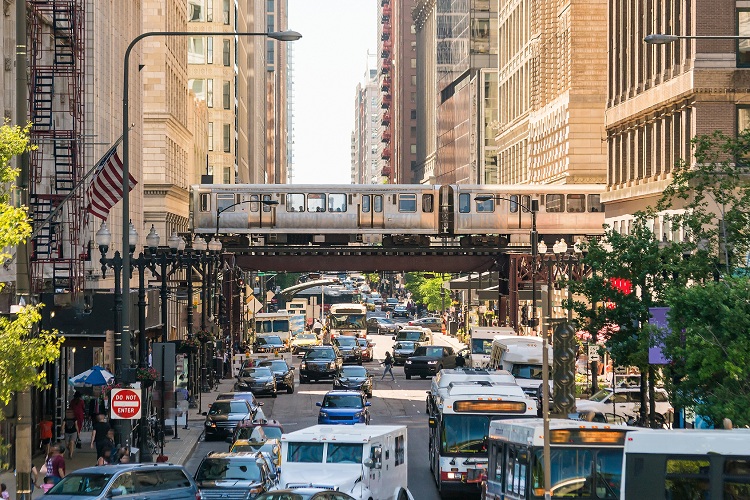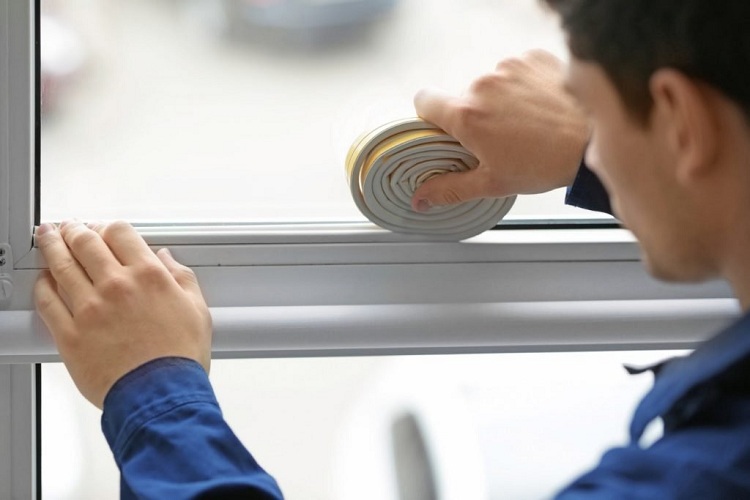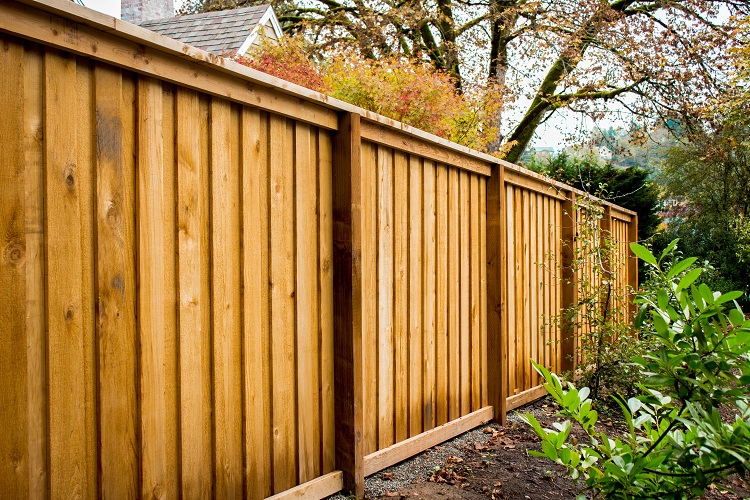Modern life has reached the point where people in busy neighborhoods are clambering to find effective road noise reduction methods.
Noise pollution has become so bad in certain areas that it affects people’s quality of life and negatively impacts their health.
The solution to road noise reduction is to insulate the home and the backyard. Only once you take action to limit noise pollution will you live a peaceful life.
Taking measures to decrease the noise pollution around you should also help to improve your stress levels.
How can road noise damage your health?

Studies indicate that noise pollution impacts children’s abilities to learn a language as the noise affects their hearing.
Children struggle to pronounce familiar words correctly and understand new ones. This situation is hardly surprising as the noise from vehicles driving on roads can reach up to 66 decibels.
Adults also suffer from noise pollution, exhibiting signs of increases in their blood pressure, anxiety levels, depression, stroke, and cardiac diseases.
Studies indicate that this problem is so severe that a 10-decibel increase in noise generates a 28 percent rise in the amount of medication they use to control their anxiety.
Similarly, people who live in high-traffic noise areas display 25 percent more depression than those who live in quiet neighborhoods.
Heart problems also increase when their noise exposure is high.
The bottom line is that noise elevates most people’s stress levels, which negatively influences their health. Road noise reduction is to use insulation methods in and around the home to reduce noise exposure and live a healthier life.
How to reduce road noise in your house?

Noise causes vibrations that produce sound waves. When anything vibrates at a sufficiently high level, it can generate stress for people.
Other than improving your home value, soundproofing will increase your quality of life.
Road noise reduction works by placing obstacles between your home and the source of the noise.
When soundwaves from the road travel toward your home, the barriers will help absorb or deflect the noise pollution heading in your home’s direction.
You can soundproof your home for road noise reduction by using these guidelines.
Things you will need:
- Some tips require a lot of money and a professional handyperson.
- Some tips require a lot of cash and DIY skills.
- Other tips require zero permission to make changes and a bit of creative thinking.
Tip 1: Fixing wall cracks
Use a product like Polyfilla’s masonry patching plaster or Ronseal smooth finish filler to fill outdoor and indoor wall cracks as one road noise reduction method.
Any small cracks surrounding electrical sockets, outdoor faucets, air conditioners, window frames, door frames, or ventilation grates should receive careful attention.
You can even use a product like caulk to repair wall cracks. If the gaps are substantial, install drywalling to plaster cracks to reduce road noise reduction.
Tip 2: Door and window sealing
Use weather strips to block gaps around doors and windows to reduce road noise and for the thermal properties, these strips provide.
If your home has hollow doors, replace these with solid ones. You can consider replacing window glass with double or triple-paned PVC glass and frames.
Although glass pane replacement is expensive, it is an effective method of road noise reduction.
Tip 3: Repair noisy flooring
If your home has wooden floor paneling that creaks and groans, fix the offending panels to limit indoor noise. If you are not up for the job, call a professional for help.
If you can bring yourself to cover wooden floors, install thick carpeting over them. Thick carpets will help absorb noise and limit the vibrations of road noise and the soundwaves they produce.
Tip 4: Ceiling and wall insulation
Products like mass-loaded vinyl (MLV), fiberglass panels, viscoelastic foam, or neoprene rubber are excellent insulation materials.
You can install these insulation panels in the home’s ceilings and walls to limit incoming road noise.
Even though this is a massive job to undertake yourself, it is worth the effort and money you spend to reclaim your peace.
Tip 5: Cheap, practical DIY tips for road noise reduction
Not everyone can afford expensive ceiling and wall insulation with Dynamat or similar sound-deadening products.
The good news is that there are other options to limit incoming soundwaves that disturb your peaceful home environment effectively.
- Install shelving on roadside walls and fill these shelves with books. Books act as a dense sound barrier and absorb a lot of noise emanating from the street.
- If you have wooden floors in the home and don’t want to cover these with thick carpets, the other option is to cover them with rugs. Rugs also absorb vibrational soundwaves that road traffic generates.
- Rearrange the furniture in the rooms closest to the road to create more of a sound barrier between the two. Whenever you place obstacles between noise and yourself, you help deflect or absorb the noise that invades the space.
- Another idea is to place heavy curtains over windows on the home’s street side. Heavy materials also create a valuable barrier to decrease noise levels in the house.
Besides improving your indoor sound insulation, you can also take action to do the same in the outdoor area of the property.
How to reduce road noise in the backyard?

Whether your backyard faces the road, or you have a front yard that faces heavy traffic, you can build barriers for road noise reduction.
Common barriers to deflect the noise in your backyard include:
- Wood fences
- Brick or concrete walls
- Botanical landscaping
#1 Wood fences
You can purchase wood or wooden fence paneling from the local hardware store to erect a wooden fence in your backyard.
Erecting a fence may mean removing a current, ineffective fence barrier, or starting from scratch.
With a few tools such as a measuring tape, wood panels, a hammer for nails, or an electric drill for screws, you can put up your wooden fence.
You will also need a pick or spade to dig holes and concrete to fix fence posts in the dirt. Install thick wooden panels as deeply as possible in the earth.
The deeper the installation, the more effective this barrier will be in limiting soundwave vibrations.
Check with local authorities to determine the heights of fencing permissible in your area. If you can install an 8-foot fence instead of a lower one, this will also decrease the soundwaves that reach your property.
You can either erect the fence yourself or get professional help to install an attractive wooden fence. Once done, the wooden panels will aid in reducing road traffic noise.
#2 Brick or concrete wall
The same concept applies to brick fencing that applies to wooden fences. You can erect a brick wall to manage road noise reduction.
Again, you will need to check local regulations regarding fencing types and heights.
Either embark on a brick wall or concrete wall DIY job or get help from professionals.
Installing a barrier with concrete slabs may be a cheaper option, but concrete is less dense and often less aesthetically appealing than a brick wall, so weigh your options accordingly.
#3 Botanical solutions
Start planting shrubs and trees in your backyard. The denser the foliage in the outdoor space, the more effective will be the barrier you create.
DIY landscaping can also be an expensive solution to drowning out road noise, but you can do it over a more extended period, which will be kinder to your budget.
Conclusion
Road noise reduction is a lot simpler than you think.
To recap:
You can achieve improvements in indoor insulation by:
- Fixing wall cracks
- Sealing doors or purchasing insulated doors
- Sealing or replacing windows and windowpanes
- Repairing creaking floorboards
- Installing ceiling and wall insulation
- Building and filling bookshelves
- Hanging heavy curtains
- Installing thick carpeting
- Using thick rugs
- Outdoor insulation solutions for road noise reduction include:
- Erecting wooden fencing panels
- Installing a brick or concrete wall
- Planting shrubbery
Please give us feedback on your indoor and outdoor road noise reduction tips.
Resources:
